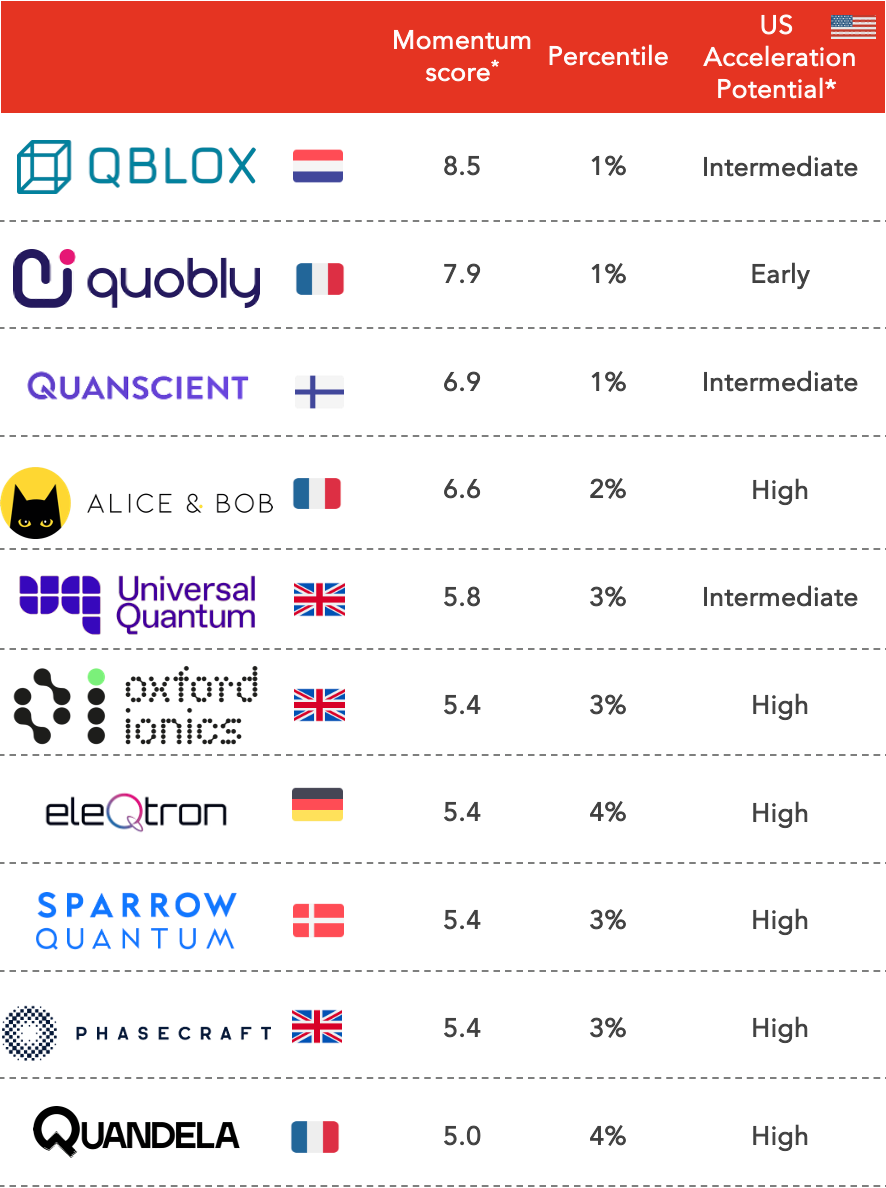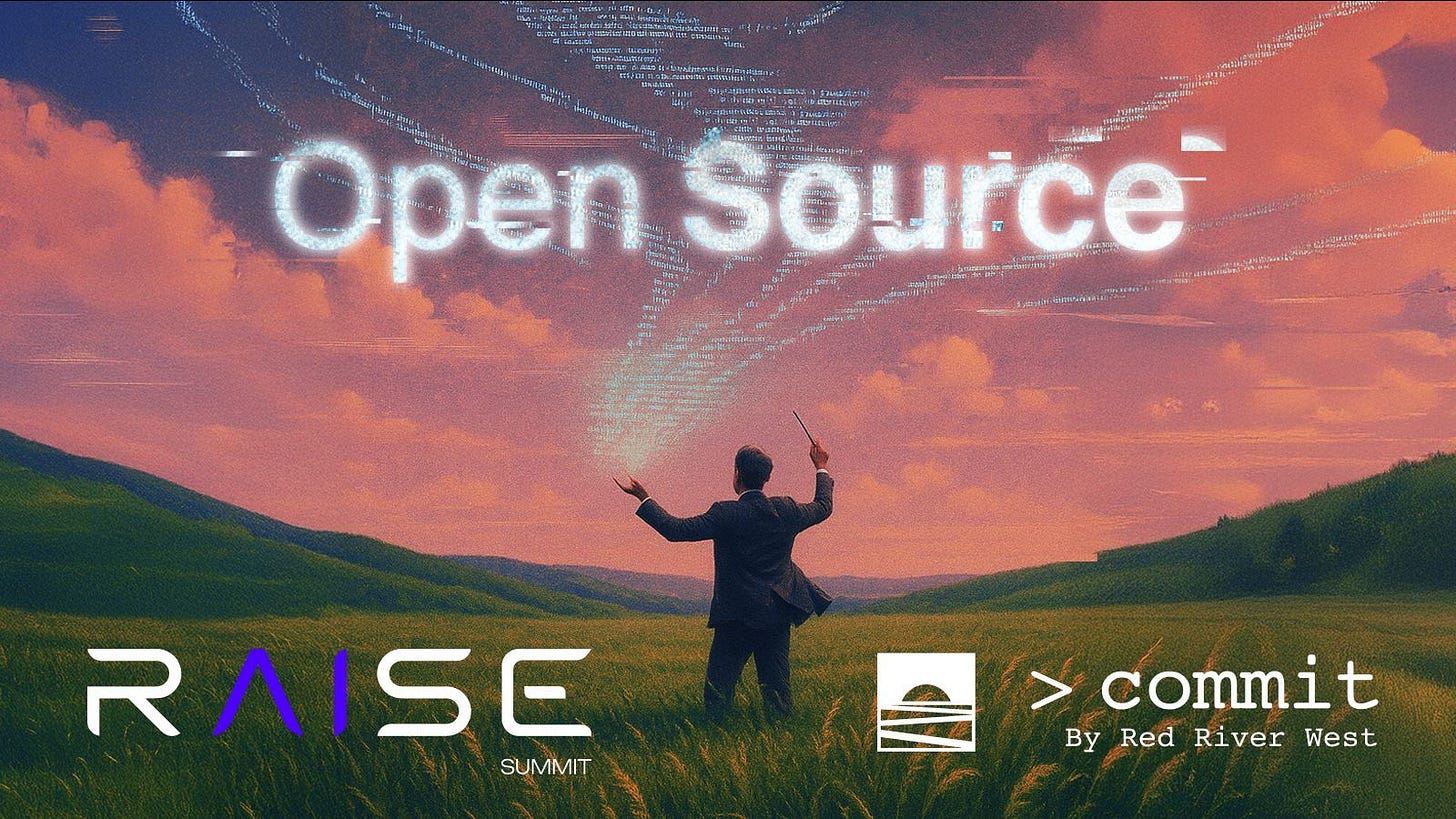Red River Insights - Quantum top 10
Europe’s Quantum Leap - Startups shaping tomorrow’s computing Landscape
Red River Insights - June 2025
Dear friends,
“Quantum computing is on the verge of an inflection point and will start cracking real-world problems much sooner than we thought,” said Jensen Huang, CEO of NVIDIA, during his recent visit to Paris. Recent breakthroughs are indeed exciting: quantum computers are now capable of performing a few tasks previously considered impossible for classical computers, opening doors to solving complex problems in pharmaceuticals, logistics, finance, and climate modeling. However, reaching true quantum supremacy, where quantum systems decisively outperform classical computers on practical tasks, is still on the horizon.
The optimism is tempered by significant hurdles that keep quantum computing firmly in the deep-tech category. Quantum systems remain fragile, prone to errors, and challenging to scale economically. These factors currently restrict quantum computing primarily to specialised research labs and major corporations rather than broad, democratised use.
Google’s recent demonstration with its Willow quantum processor even sparked a philosophical debate, reigniting the question: “When a quantum computer explores many possibilities, are we tapping into many universes?” Not everyone agrees, but it sure makes quantum computing even more mind-blowing.
At Red River West, our investment definition of quantum computing encompasses any technology, hardware or software, that leverages quantum mechanical principles, such as superposition and entanglement, to solve computationally intensive problems more effectively than classical methods. This includes quantum processors and their entire supporting ecosystems: specialised control systems, algorithms, software platforms, and integration tools essential to their operation and market deployment.
Quantum computers store and manipulate information using quantum bits, or qubits, leveraging phenomena like superposition (multiple simultaneous states) and entanglement (long-distance correlations between qubits). While offering unprecedented computational potential, these quantum behaviors are extremely sensitive to environmental disturbances, causing rapid decoherence and errors. Consequently, the industry is intensely focused on enhancing fidelity (reducing error rates), achieving reliable scalability (increasing qubit counts), and refining precise control mechanisms.
Europe, quietly but decisively, has emerged as the world’s second quantum computing hub, significantly driven by the EU’s €1 billion Quantum Flagship initiative launched in 2018. This extensive program has established a critical research foundation, fostering commercial quantum innovations and creating a fertile ecosystem for quantum startups.
Investor interest is rapidly intensifying: European quantum funding rounds exceeding $20 million have quadrupled since 2022 and commercial quantum hardware orders grew by 70% in 2024. The global quantum computing market is projected to reach $12.6 billion by 2032.
Our latest RAMP scan highlights this exciting momentum. This month's Quantum Top 10 features an average growth score of 6.4, surpassing the broader average of our last 10 sectorial newsletters (5.8). While the typical maturity horizon of quantum computing places most of these companies outside the current investment scope of Red River West, we remain deeply enthusiastic about the sector and continue to monitor it closely.
Scroll down to discover the 10 companies leading the charge, and the insights they reveal about Quantum’s evolving tech landscape.
RAMP's Quantum Computing top10
We hope this sparks interesting conversations. If you have any comments or would like to suggest a startup that should be included, feel free to reach out to us. Joseph, Chloé and Olivier will be delighted to discuss these trends and rankings.
(Ranking established on 20/06/2025)
We've highlighted 4 key trends illustrated by these companies:
Picks-and-shovels control stacks: Companies like Qblox lead this crucial area, developing scalable quantum control hardware, highly specialized equipment delivering precise signals to maintain qubit coherence and orchestrate computations. Think of these control systems as the critical infrastructure of quantum computing, analogous to the semiconductor industry's lithography equipment. Qblox’s recent $26 million Series A underscores their potential as foundational providers within this growing market.
Hardware diversity rather than convergence: Quantum hardware startups are embracing diverse technologies. Quobly integrates spin qubits onto semiconductor platforms, Alice & Bob uses a type of superconducting qubit, eleQtron utilises radio-frequency fields to precisely control trapped ions, Sparrow Quantum specialises in single-photon sources vital to photonic quantum systems, and Quandela develops photonic quantum computing systems leveraging single-photon qubits, enabling scalable and error-resistant quantum processing. Such technological diversity highlights quantum computing’s experimental phase, with multiple competing pathways still viable.
Error-correction breakthroughs: Reliable quantum error correction remains essential for practical applications, as errors rapidly degrade quantum computations. Promising advancements, such as Alice & Bob's squeezed-cat qubit technology, have recently emerged, drastically reducing errors by a factor of 160. Such improvements are critical milestones towards practical, usable quantum computers. Google’s Willow experiment marks another milestone: the Willow superconducting processor (105 qubits) crossed below the error‑correction threshold for the first time, a multi‑decade goal
Quantum-accelerated vertical software: Quanscient represents a critical frontier, integrating quantum algorithms directly into multiphysics simulation software. Their cloud-based platform significantly accelerates simulations for sectors like aerospace, automotive, biomedical, and energy, demonstrating immediate, tangible advantages from quantum technology even as hardware continues maturing.
Bonus trend: Quantum and cybersecurity
For years, the fear that quantum computers could break RSA encryption has loomed over the financial and cybersecurity sectors. This stems from the work of the mathematician Peter Shor, who in 1994 developed a quantum algorithm capable of factoring large numbers exponentially faster than classical methods. While the threat is real, none of the companies in our Top 10 focus on this application today. The reason is simple: we're still far from having quantum systems powerful enough to run such algorithms at scale.
Looking ahead, McKinsey forecasts quantum computing could unlock $1 trillion in economic value by 2035 and create around 250,000 specialized jobs. Yet, alongside immense opportunities, addressing post-quantum cybersecurity risks will become increasingly crucial. Collaboration among CIOs, regulators, and investors is essential for navigating this transformative technological shift.
This edition is an open invitation: if you’re building, investing in, or exploring quantum hardware, software, or applications, we’d love to discuss your insights.
More on RAMP's scoring method
The ranking of these startups is based on the estimated momentum of the company, but the algorithm does not assess the quality or reliability of the products/solutions developed by these companies!
Find out about the algorithm behind this ranking and the way scores are calculated here: Cheat sheet on RAMP
In case you missed them, our latest top 10s are here: Spain top10 (May25) Sport Tech (April 25), HR Tech (March25), Open Source AI (Feb25), Agentic AI (Jan25), French Tech (Dec24)
All the previous Top 10 are here.
Portfolio news:
The Exploration Company reported partial success for its Mission Possible spacecraft, which successfully launched, nominally powered payloads in orbit, stabilized after launcher separation, and re-established communication post atmospheric re-entry blackout. Unfortunately, the mission encountered an issue, resulting in a loss of communication minutes before splashdown, an incident still under investigation. This mission highlights both the ambitious innovation and inherent risks involved in space exploration. Leveraging insights and technical milestones from this flight, The Exploration Company is already preparing for its next mission. (More here)
From our perspective as investors at Red River West, the successful completion of the first three phases (especially atmospheric re-entry), already represent major technical achievements. We want to congratulate the entire Exploration Company team for this important milestone and look forward to the next missions with great confidence.
We’re super proud to announce that 5 of our portfolio companies have been selected for the 2025 Next40/FT120 French Tech rankings. Worldia was recognized in the prestigious Next40, while Le Collectionist, Resilience, Veesion, and Brut joined the FT120, an exceptional achievement given our highly focused portfolio! (More here)
French broadcaster TF1 ran a feature on Veesion’s gesture‑recognition AI, showing supermarkets that have cut shoplifting by a factor of three and saved roughly €30 000 a year. The spotlight comes as Veesion passes 5 000 retail customers worldwide and accelerates its international rollout. (More here)
Resilience announced a partnership with Bristol Myers Squibb France to launch a dedicated support program for patients receiving CAR-T cell therapies. The initiative provides tailored digital resources, symptom monitoring, and targeted questionnaires to enhance patient experience and adherence while easing healthcare providers' workloads. (More here)
iObeya gathered customers in Massy on 12 June for iUX 2025, where the team officially revealed “NextGen,” a completely redesigned version of its visual‑management platform that grew out of user feedback. The one‑day summit mixed keynotes with hands‑on labs to let participants try the new release in real time. (More here)
Team news:
We're excited to announce our partnership with the RAISE Summit in Paris this July, where we'll be leading the Open Source track through our latest initiative, >commit. As the first transatlantic fund fully dedicated to Open Source, >commit is bringing together 50+ founders and CEOs from outstanding Open Source companies for an exclusive series of four panels, two fireside chats, and a special side event on July 9th (More here)
You received this newsletter because we met or worked together and we thought you might be interested in an update, if we got it wrong, feel free to unsubscribe with the link at the end!








